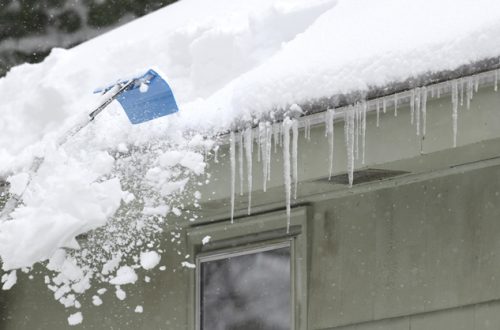Engineering and Gender-Based Violence: Why We Still Have a Long Way to Go
Statement by Michelle Liu & Shivani Nathoo, Co-Chairs of OSPE’s Equity, Diversity, Inclusion, and Accessibility Task Force
The Ontario Society of Professional Engineers (OSPE) recognizes the significance of the 16 Days of Activism against Gender-Based Violence and the National Day of Remembrance and Action on Violence Against Women. The Government of Canada recognizes these moments as being about remembering those who have experienced gender-based violence and those we have lost to it, including women, girls and 2SLGBTQIA+ individuals. For the engineering community specifically, we remember the tragic murder of 14 young women at Polytechnique Montréal on December 6, 1989, including 12 engineering students. This event reminds us of the pressing need to address and confront gender-based violence and discrimination in the engineering community.
The engineering discipline is playing catch-up to other professional domains in terms of equity, diversity, and inclusion. Among other identity statistics, only 13 percent of licensed engineers in Canada were female in 2019 (the data is only disaggregated by sex and not gender) compared to 41.6 percent in the legal profession and 42 percent in the medical profession, for example, in the same year.
In recent years, the Canadian engineering community has worked to increase the number of women in engineering and combat gender-based discrimination in the field. Initiatives such as Engineers Canada’s 30 by 30, aiming to increase the proportion of newly licensed female engineers, are steps in the right direction, and have started to make a difference. Today, more women are thinking of engineering as a profession. Women make up over 30% of incoming undergraduate engineering classes at many universities, including the University of Toronto and the University of Waterloo. However, we still have a long way to go in ensuring that diversity in universities makes it into the workforce, and this begins with equitable policies and inclusive spaces. In 2020 and 2021, only 20.7% of new PEO licensees were female-identifying, and women still felt a lower sense of belonging than men in the engineering profession.
In addition, we must expand our understanding of gender to inclusively address the experiences of engineers of all underrepresented genders, including trans, non-binary, and gender non-conforming engineers. According to the 2021 census, 1 in every 125 people born between 1997 and 2006, and 1 in every 200 people born between 1981 and 1996 in Canada identify as transgender or non-binary. In 2022, 1 in every 30 people in the incoming University of Toronto engineering class chose not to report gender, or reported themselves as “another gender” aside from “man” or “woman.” These individuals face elevated challenges and discrimination, often exacerbated by rising anti-2SLGBTQIA+ sentiments in Canada. As highlighted in OSPE’s statement opposing protests against the trans+ and 2SLGBTQIA+ communities. OSPE is committed to fostering a safe, inclusive, and respectful environment for these communities within engineering.
The lack of comprehensive data collection and analysis on gender identity by engineering regulators, schools, and workplaces, among other issues, hinders our ability to address gender-based inequities. Put simply, we cannot address what we do not measure, and we cannot measure progress in the absence of data. This gap in knowledge and understanding prevents us from addressing issues within the profession and contributes to the persistence of gender-based violence and discrimination in engineering.
In light of these challenges, OSPE, through its Equity, Diversity, Inclusion, and Accessibility Task Force, is dedicated to advancing conversations and actions that acknowledge and address the violence and discrimination facing all engineers of underrepresented genders. Engineering spaces must empower and represent equity-seeking identities, and this begins with acknowledging the barriers and biases that exist within engineering, collecting data, and tracking progress.
We call upon our members and the broader engineering community to actively participate in creating a more inclusive and equitable discipline. This involves not only recognizing the unique challenges faced by underrepresented groups but also implementing actionable strategies such as gender-neutral policies, comprehensive benefits including universal parental leave, and continuous equity & inclusion training. In addition to data collection, we emphasize the importance of diverse representation in leadership roles and the creation of mentorship programs tailored to support all engineers.
As we observe the 16 Days of Activism against Gender-Based Violence and the National Day of Remembrance and Action on Violence Against Women, let us recommit ourselves to the ongoing work of reducing gender-based violence and discrimination in the engineering community.




Leave a Comment